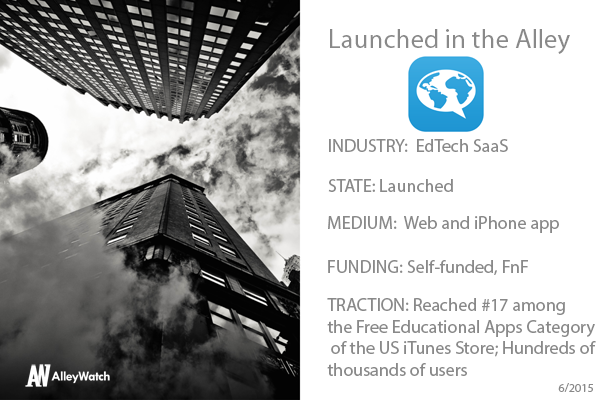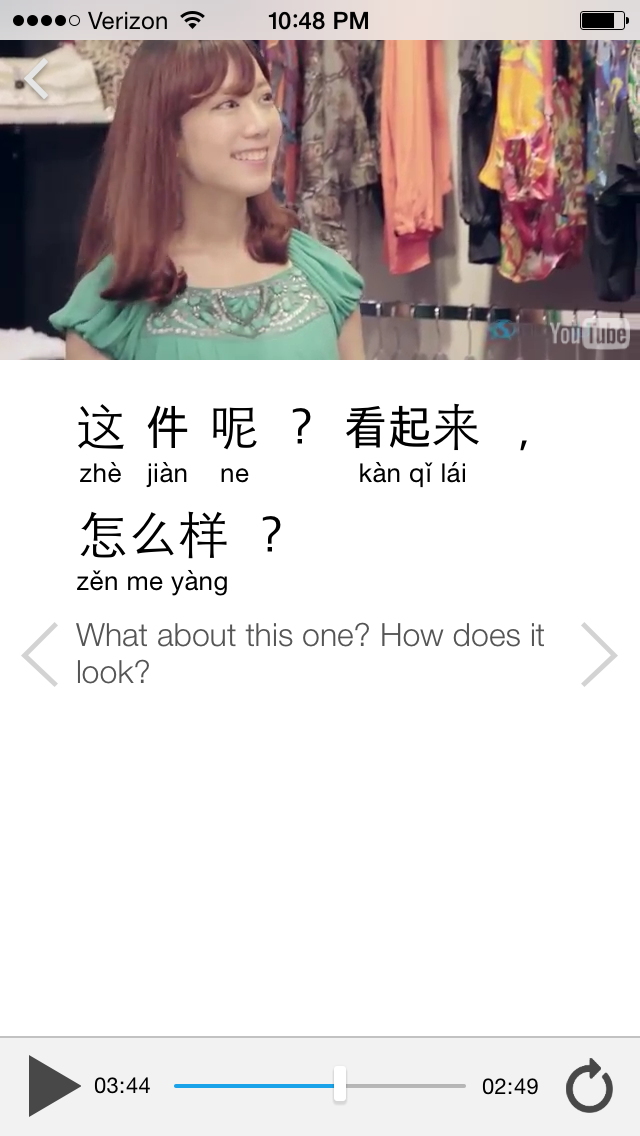FluentU is a new way to learn a language, using real-world videos, like music videos, movie trailers, news, and inspiring talks. You know – those things that native speakers see and hear, but on your level, to help you learn, advance – and speak more like a native, by picking up the subtleties and the more colloquial terms.
Makes perfect sense and in fact, it’s even being used in schools, where exposing student to authentic content is becoming a priority – and a game changer. It’s also a lot more engaging and a lot less boring than sitting there with a textbook, which is so last century.
And it’s available both on the web and as an iPhone app.
Founder and CEO Alan Park tells us more about it, in plain English.
Tell us about the service.
FluentU is a new way to learn a language with real-world videos, like music videos, movie trailers, news, and inspiring talks. FluentU takes authentic content and turns it into language learning lessons.
Schools also use FluentU to incorporate video immersion into their students’ learning as an alternative to traditional language learning labs. For language teachers, exposing students to authentic content is a big priority that is becoming more important, especially as it becomes a core part of standardized tests, like the AP. But finding, assigning, and grading authentic content is time consuming and difficult.
How is it different?

The biggest difference is that FluentU is uses engaging authentic videos, rather than a boring textbook or scripted podcast. FluentU also has other advantages that come from the interactive nature of the platform. For example, FluentU keeps track of every action that a user takes on the platform, which leads to a personalized experience: people are shown different video clips or questions, depending on what they have learned previously. Also, users are always learning words in context on FluentU – detailed info and examples of how a word is used is never more than a tap/click away.
There are other language-learning startups that also use authentic content, like news or music videos. What sets FluentU apart is that, for us, the tech side is only part of the answer. We aren’t afraid to get our hands dirty to create the content and supporting materials that make it truly possible to learn from authentic content. The result is something that works in both theory and practice.
For teachers, FluentU is a modern, affordable, and time-saving alternative to language learning labs which cost tens of thousands of dollars. FluentU is a modern cloud-hosted solution with a user friendly interface that they can quickly try, risk-free.
What market are you attacking and how big is it?
We are attacking two markets: individual language learners and language labs for schools. We cover six languages currently (Chinese, Spanish, French, German, Japanese, and English). It’s a multibillion dollar industry that is growing fast (especially for English learning).
What is the business model?
We work on a subscription model. For individuals, we have three plans (free,$8 per month, and $18 per month) that give access to different features. For schools, we have academic pricing at a per user rate.
What inspired the business?
I learned Chinese, Japanese, and Korean for over a decade, and often communicated primarily in those languages as a management consultant in Asia. FluentU came out of that experience of learning those languages to fluency. While learning, I found that I learned best from using native content that I was interested in, like TV shows.
As I explore the idea more, I realized that language learning products today are boring and don’t equip people to learn a language the way that it’s actually used. Instead, they train learners to learn words in isolation. Once learners go from the classroom into the real world, they find themselves completely unequipped to engage in actual conversation. And even if they’re able to talk, they don’t know what to talk about, because they haven’t really learned about the culture.
According to your platform, which types of content are the most effective in learning a new language?
The single biggest learning is that there is no one-size-fits-all approach when it comes to learning. We get a lot of contradictory content requests from our users. For example, some people love music videos, while others hate them and prefer more documentary-style videos. We’ve found that people learn fastest and persevere when they learn using content that they’re interested in.
What are the milestones that you plan to achieve within six months?
We’ve just launched our iPhone app and it’s already reached the top 20 in the free Educational Apps category in the US. We want to build on this success by releasing an iPad app.
We’re also going to launch some major updates to our school features, starting with assignments and progress tracking.
What is the one piece of startup advice that you never got?
One of the most important things is sequencing. The best idea will still fail if you do things in the wrong order. Spend less time thinking about conquering the world, and more time identifying the beachhead (in terms of product features and market segment) that is the best place to get started.
If you could be put in touch with anyone in the New York community who would it be and why?
It would be great to meet the founder and CEO of Schoology, Jeremy Friedman. I love the product they’ve created, and I’m really impressed at the distribution they’ve been able to achieve with schools in just a few years.
Why did you launch in New York?
I’m from the New York metropolitan area, so it’s where I naturally call home. Also, it has been really rejuvenating to witness and be a part of the tech renaissance that is happening here.
Where is your favorite outdoor bar in the city for a drink when it is actually warm out?
Bookmarks Lounge




